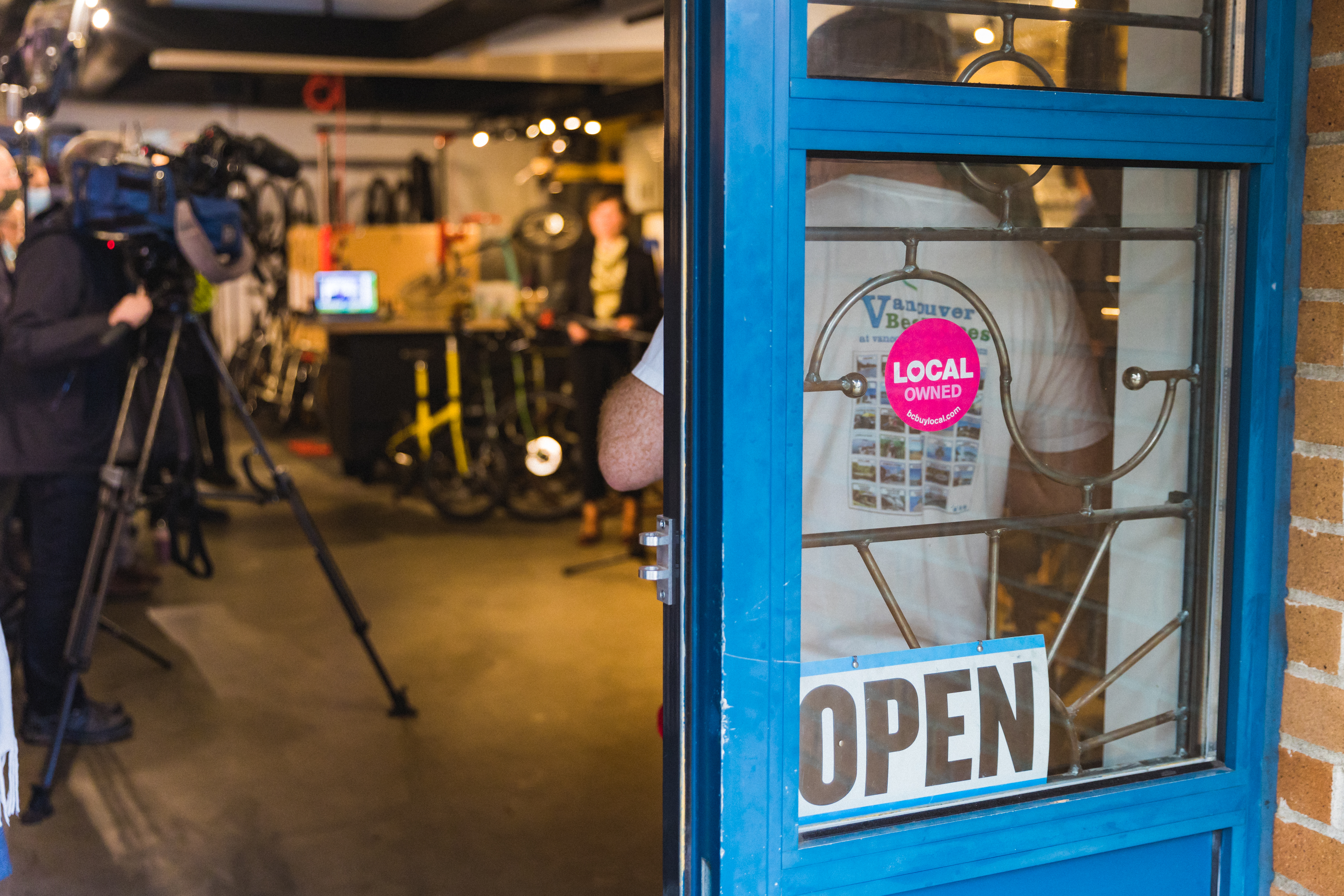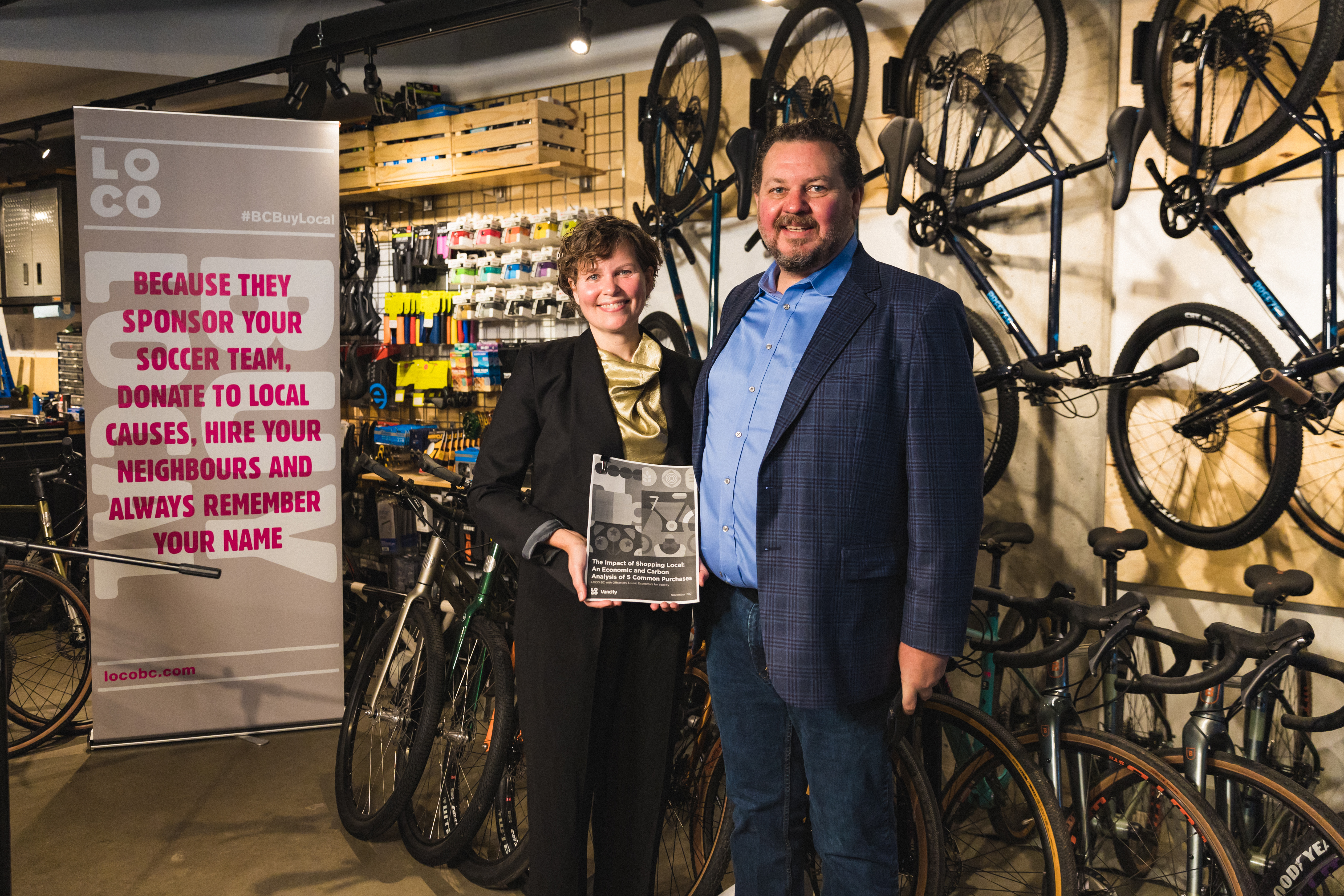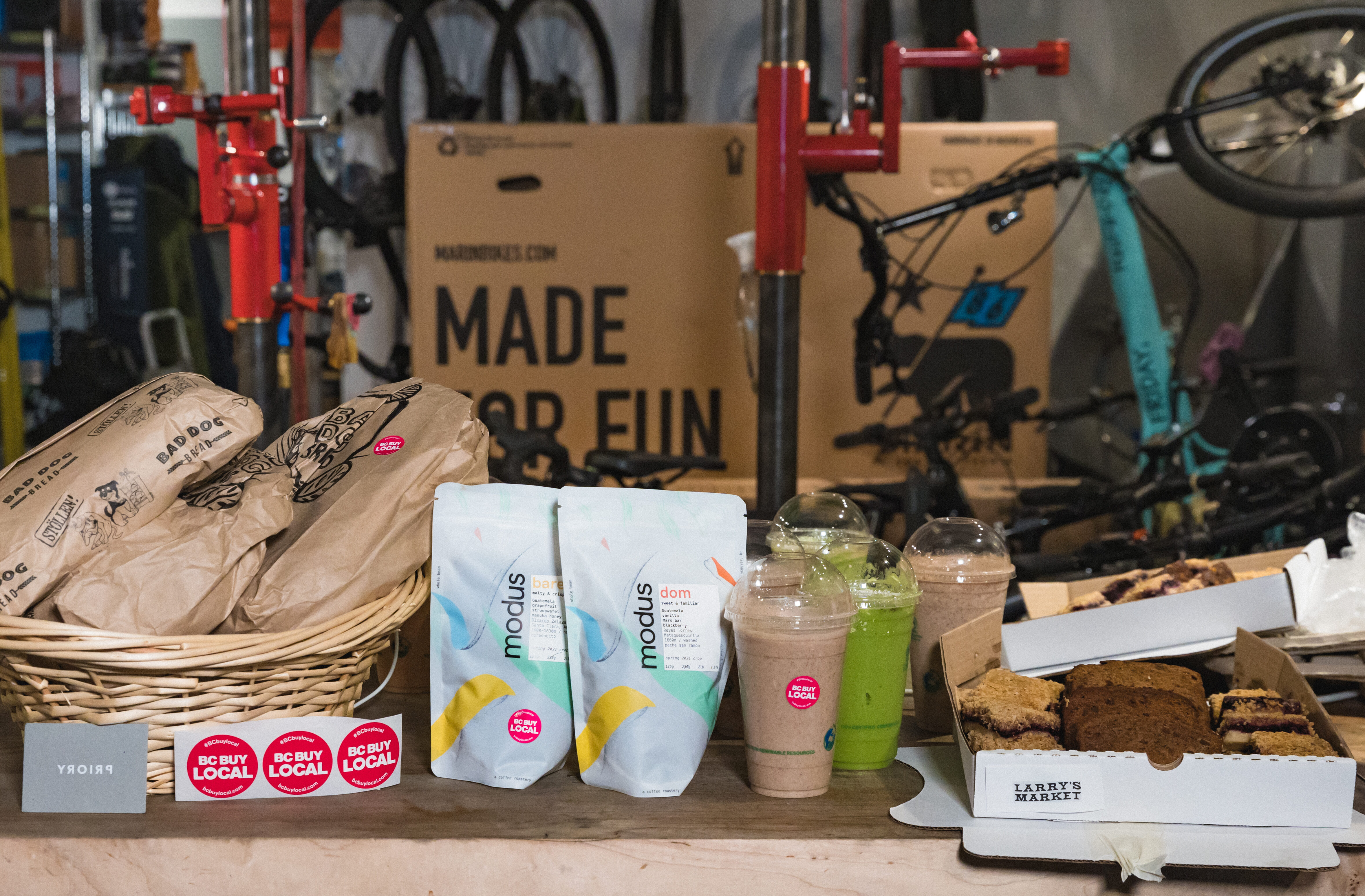LOCO BC Analyzes The Economic and Climate Benefits of Buying Local
Projects Sponsor
LOCO has conducted many research studies over the years, mostly focused on the economic benefits of independent businesses. Their founder and CEO Amy Robinson has a sustainability background, and they often promote the intangible social and environmental benefits of buying local, so they wanted to develop research to clearly demonstrate these impacts. This was especially important, given that there is some contention over when and whether a local product makes environmental sense.
For instance, we hear that the average ingredient travels 2400km to our plates, but we also hear that a tomato grown locally in a greenhouse may have a higher carbon footprint than one grown in-season that travels from California or Mexico.
LOCO wanted to develop some research that would shed light on the carbon impacts of local and imported products (spoiler: the biggest impact wasn’t in the transportation!). The goal was to provide consumers and other purchasers with information to make more discerning purchasing decisions, to support local economies and the planet, and to finally put an end to the greenhouse vs transport debates that have disrupted too many pasta dinners.

LOCO worked with their partners at Vancity to put together a crack team of consultants to identify which products and businesses to focus on in their research. Vancity reached out to their business members and introduced LOCO to coordinate their potential involvement in the project. LOCO expanded the focus from Vancity members to included other value-added company attributes aligned with Vancity and LOCO values (Indigenous-owned, Woman-owned, Black-owned, Person of Colour-owned, Immigrant-owned, etc.) and Vancity agreed to include a woman- and POC-owned clothing business that LOCO initiated discussions with. Once all businesses were identified and had confirmed their participation, LOCO coordinated online meetings with business owners to introduce the team and review the data they would need to collect from each business.
LOCO developed the reporting template while experts collected data from the businesses, although, as is often the case when working with busy businesses, LOCO had to follow up to ensure timely data collection.

Each group of experts produced a report on their methodology and each product and/or business. LOCO worked to integrate this data and report it in an engaging way. They worked with iilo Creative on infographics for each product to distribute as a companion to the report and in LOCO’s own campaigns. Once the report was complete, it was circulated to each of the businesses involved for their consent, and once all involved had signed off, Spatial R+D stepped in to work on graphic design. The final report, along with an accessible blog post outlining key insights, were published on LOCO’s website.

The report was published in time for LOCO’s Buy Local Week press conference at the end of 2021. One of the participating businesses hosted the event, which featured all of the products involved in the study – from bikes to bags of bread and coffee. Catering came from the grocery & cafe that supplied blueberries featured in the report, and Amy Robinson wore a blouse from the clothing company LOCO had brought in.
This research is among the first in the world to demonstrate the reduced carbon impact of local purchasing. This report—timed to encourage those who had accumulated savings following COVID-19 lockdowns to make conscientious purchases in support of small businesses, the local economy, and the planet—empowers Canadians to reduce the carbon impact of purchases they make every day (coffee shop drinks, bread, fruit), and on other one-time purchases (clothing, sporting equipment).
LOCO received media coverage for the work and continues to educate business audiences about the reduced carbon impact of local purchasing through their business engagement workshops. Since the report was released, more than 500 businesses have participated in training workshops. LOCO is confident that, over time, the results of this research will help shift consumer and business spending towards local businesses, producing significant benefits for local economies and helping reduce the greenhouse gases associated with purchasing.













